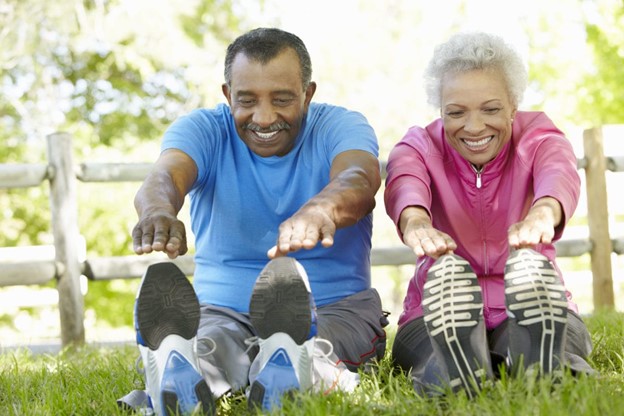July 11, 2023
The Community Health Corner
Submitted by Stephanie Gutierrez

Community health uses science-based approaches for the greatest health benefit to the greatest number of people by addressing the social, economic and structural drivers that impact everyone’s health. The National Extension Framework for Health Equity and Well-being recommends using community development practices to ensure that every person has the opportunity to "attain his or her full health potential," and no one is "disadvantaged from achieving this potential because of social position or other socially determined circumstances." The following tools and resources can be used to improve health equity and well-being by working with communities to achieve the nation’s Healthy People 2030 objectives.
LEARN NOW: The Physical Activity Guidelines for Americans provides science-based guidance to help Americans maintain or improve their health through physical activity. The U.S. Department of Health and Human Services (HHS) released the first edition of the Guidelines in 2008 — and since then it has continued to be a go-to resource for health professionals, educators, researchers, organizations, and policymakers. To build on the second edition of the Guidelines, released in 2018, HHS has developed the Physical Activity Guidelines for Americans Midcourse Report: Implementation Strategies for Older Adults. The new report highlights strategies and interventions to help promote physical activity among older adults — people age 65 years and older.
READ NOW: CDC has released the Healthy Brain Initiative: State and Local Road Map for Public Health, 2023-2027, which provides public health officials with a set of strategies to promote brain health and improve the quality of life for people living with dementia and their caregivers. The Alzheimer’s Association and the Centers for Disease Control and Prevention (CDC) with more than 100 experts working in health departments, nonprofits, academic institutions, health systems and the private sector provided feedback and guidance during the development of the HBI Road Map.
DISCOVER NOW: The Urban Waters Learning Network has announced a new learning series entitled Building Water Equity and Climate Resilient Communities for ALL. The six-part series, beginning on July 19, will highlight a variety of strategies that community-based organizations can use to help their communities anticipate, prepare for and respond to climate risks such as flooding, coastal storms and drought, with a focus on protecting community members who are most vulnerable to climate threats.
For more information, contact Elaine Johannes, ejohanne@ksu.edu; and Stephanie Gutierrez, smgutier@k-state.edu.